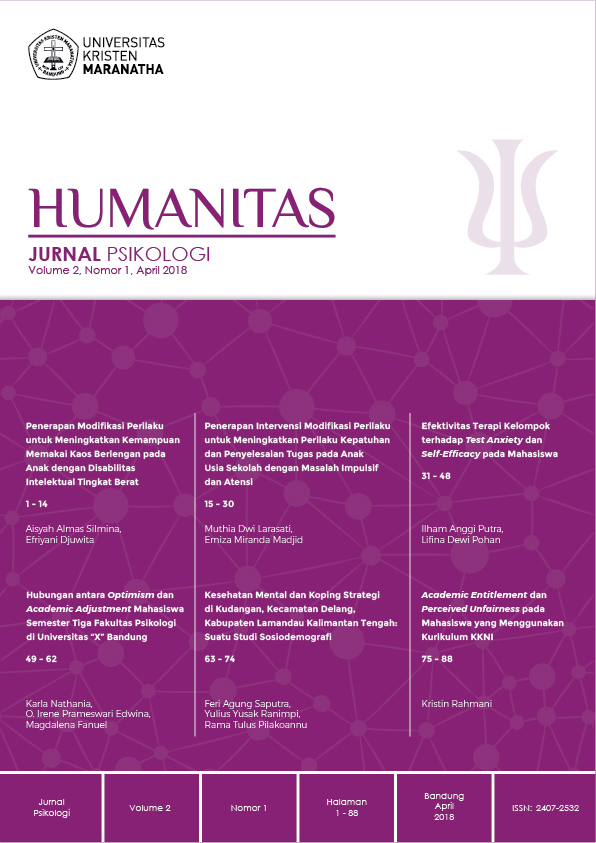Hubungan antara Optimism dan Academic Adjustment Mahasiswa Semester Tiga Fakultas Psikologi di Universitas "X" Bandung
Main Article Content
Abstract
In the early years of university learning, university students required academic adjustment in regards to the differences between the learning demands and strategies between senior high school and university. Academic adjustment is a required process to fulfill academic needs appropriately. Schneider (1964), Aspinwal & Taylor (1992) found that students who are optimist were more likely to undergo the transition from senior high school to university with a lower level of stress. Seligman (2006) stated optimism as a way for individuals to explain and link an event that is perceived to be wonderful as personal, permanent, and pervasive. 129 students from the Faculty of Psychology participated in this research. The measures used based on Seligman’s theory weas Schneider academic adjustment. The validity of the measure was between 0.3-0.65 and the validity of the academic adjustment measure was between 0.3-0.62. The reliability of the optimism measure was between 0.17-0.64 and the reliability of the academic adjustment measure was 0.874. Based on the analysis of the data and the results of the Spearman Rank Correlation test, there was a quite significant finding on the relationship between optimism and academic adjustment. The aspect of permanence was found to have a stronger relationship with academic adjustment in comparison to the other two aspects of optimism. Future research suggested further research in understanding the role of optimism towards the academic adjustment of the university students of the Faculty of Psychology. The staffs of the faculty of psychology could utilised the results of this research to assemble an optimism and academic adjustment training for the recently enrolled university students.
Downloads
Download data is not yet available.
Article Details
How to Cite
Nathania, K., & Edwina, I. P. (2018). Hubungan antara Optimism dan Academic Adjustment Mahasiswa Semester Tiga Fakultas Psikologi di Universitas "X" Bandung. Humanitas (Jurnal Psikologi), 2(1), 49–62. https://doi.org/10.28932/humanitas.v2i1.1045
Issue
Section
Articles

